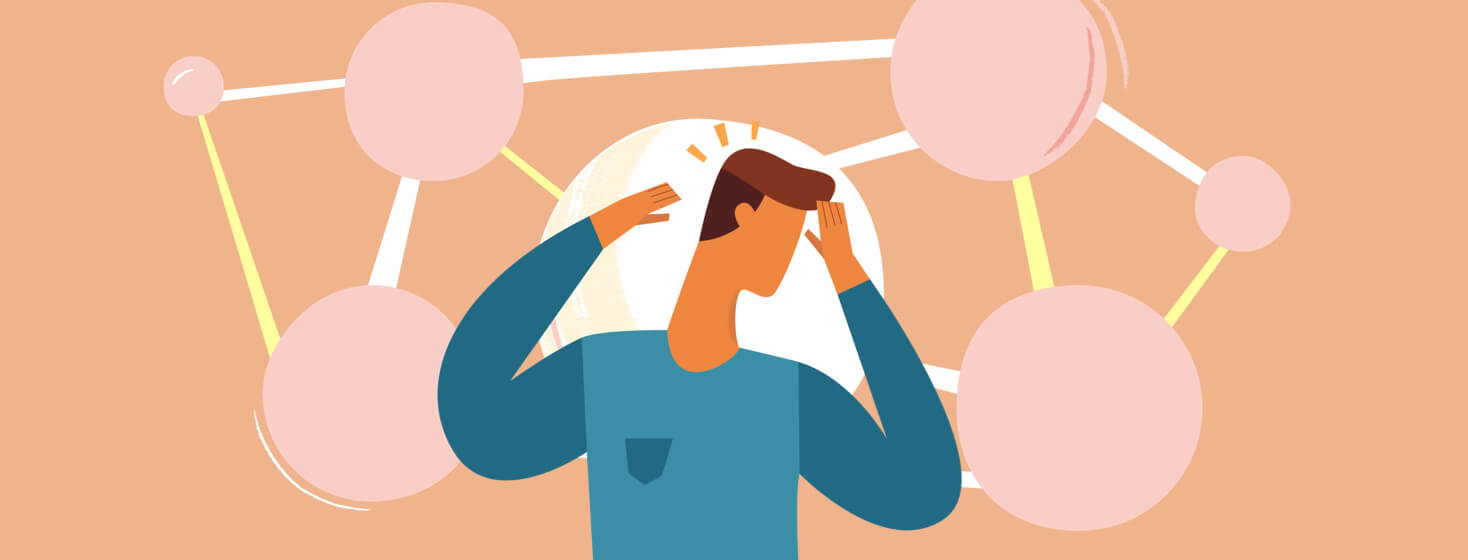Epilepsy and Migraines: A Pain in the Head
A quiet and dark room, cold compress, Ibuprofen, and Tylenol... Oh, migraine we meet again!
Migraines vs. epilepsy
At times I've had some truly debilitating hours thanks to my migraines. I've used icepacks on my forehead and back of my neck. Many times, I've had my head under my pillow and blanket to make sure it was as dark as possible. My husband has also given me his noise-canceling headphones when I need 100% quiet.
Unfortunately, for years I never knew what was happening to me. When my seizures were uncontrolled, I associated the head pressure and other symptoms with my epilepsy. However, when I became seizure-free with medication, I was afraid to know what was happening to me.
I feared my symptoms were seizure-related
My main fear: What if my previous seizures caused a problem in my brain to have this insane pressure?
I used to have a considerable number of seizures a day. It wasn't a huge leap to wonder if my brain had been negatively impacted due to my seizure history.
What action did I take since I was scared about these events? If your guessed that I spoke with my neurologist, you'd be wrong.
I kept to myself that I would occasionally get extreme head pressure. I knew I should tell my neurologist simply because I didn't want to tell him. I knew head pressure that could make a person double over isn't ideal and should be discussed with a medical provider. However, fear lead my leash instead of reason and logic.
Migraines were impacting my sleep and stress
Eventually, I remembered 2 key parts of my seizure prevention plan:
- Reduce stress.
- Get proper sleep.
I realized the danger I put myself in by not speaking up to my doctor. I used to get sleep-deprived EEGs, so I know that anxiety mixed with a lack of sleep is the perfect remedy for a seizure (at least for me). I added unneeded anxiety and stress to my life every time I had a crushing headache. And I was also not sleeping well. Not only from my migraine but from lingering thoughts and fears about my experience during the day.
Finally, common sense hit me. I did too much hard work to become seizure-free to let my trepidation win. Next session, I told my neurologist about my worries.
Talking to my neurologist about symptoms
I described my symptoms to him:
- Debilitating head pressure (as if my head was in a vice grip)
- Can't handle sounds
- Light (and at times, sound) makes the pain worse
- I need over-the-counter pain meds to get any relief
- I typically have a hot or cold pack on my neck and or forehead
After I fully explained my symptoms, he said something along the lines of, "Oh good. This is a migraine!" I was shocked with a positive response to my pain. My neurologist said he meant that my seizure disorder has not changed. After he explained my migraines in this way, I also had the feeling of relief.
Treating my migraines
My neurologist had a simple plan for me:
- Stay hydrated.
- Take Tylenol or Ibuprofen (and watch my dosage).
- Find a quiet and dark space.
- Reduce my stress.
- Take melatonin at night.
- Let him know if my migraines continue or get worse.
After our televisit, I went to Walgreens. I really don't enjoy taking pills. So, I bought myself some joy with dissolvable melatonin. I like to pretend it's candy, especially now that I've cut out added sugar.
Talk to your doctor about migraines and epilepsy
Here's the moral of my story. Migraines are a pain in the HEAD! Tell your neurologist about any developing symptoms. My lack of communication allowed fear and stress to take over when I'd have an episode. When the truth was, there were simple solutions to help prevent these migraine symptoms.
As Nelson Mandela said, "The brave man is not he who does not feel afraid, but he who conquers that fear." And always remember, you are not alone.

Join the conversation